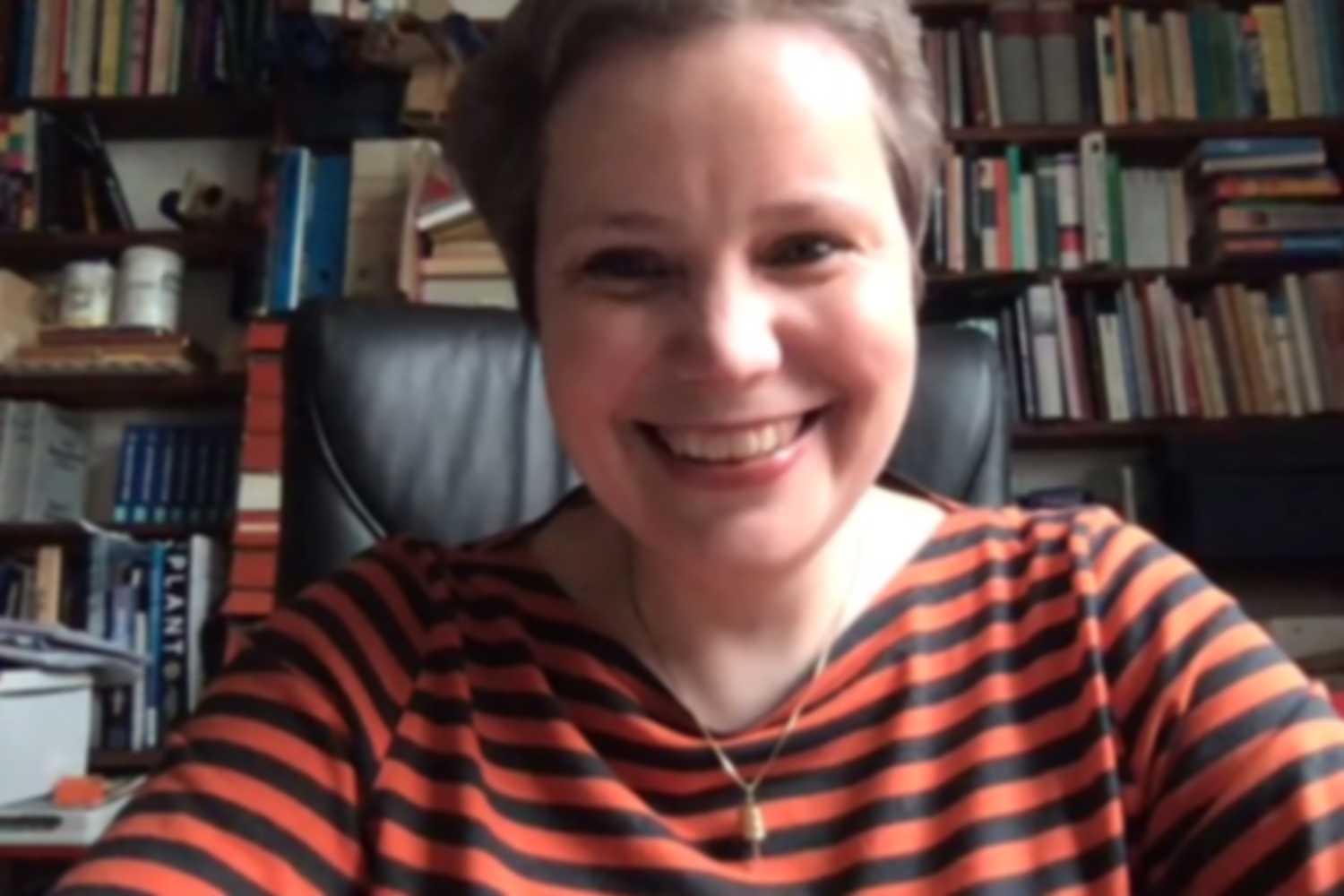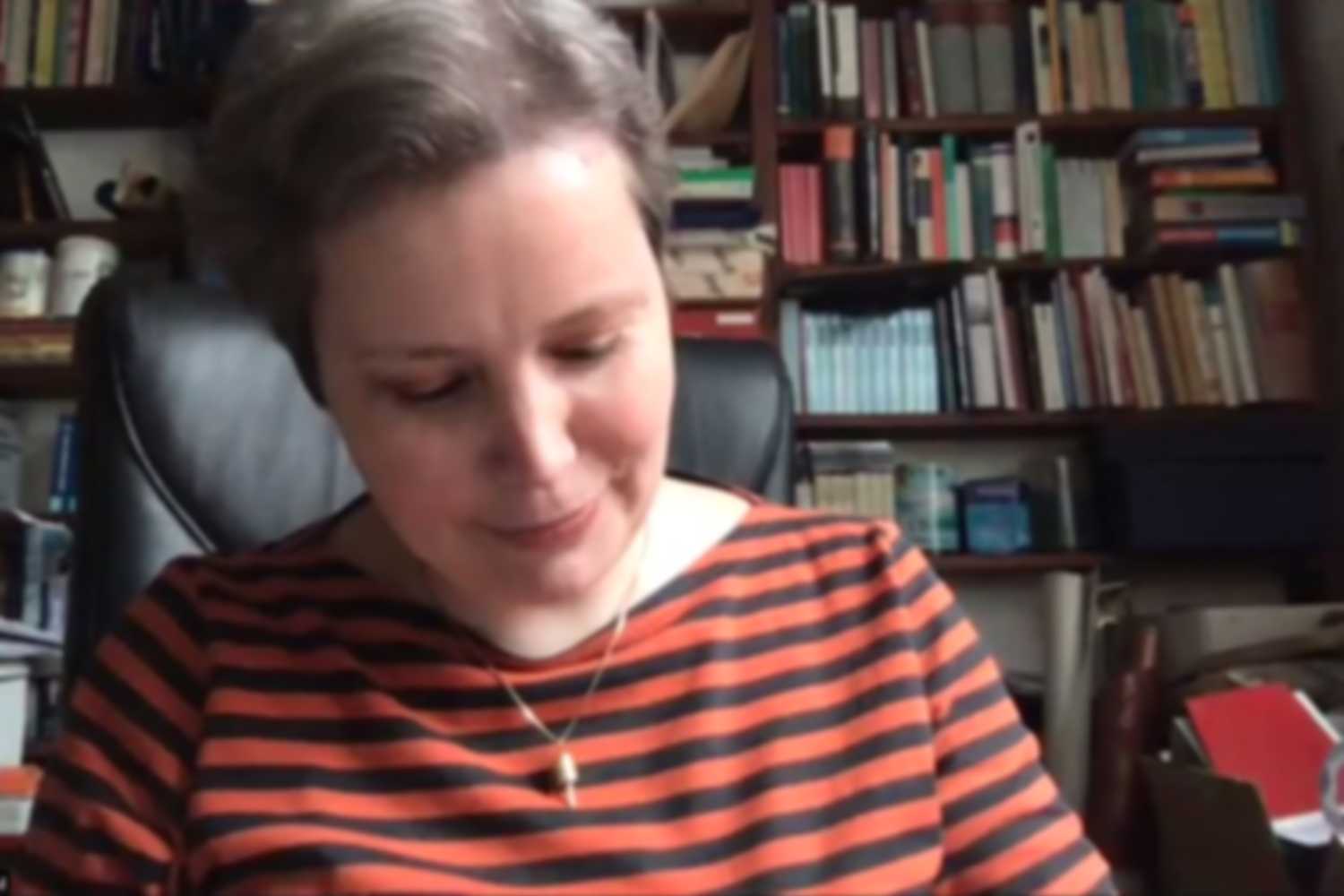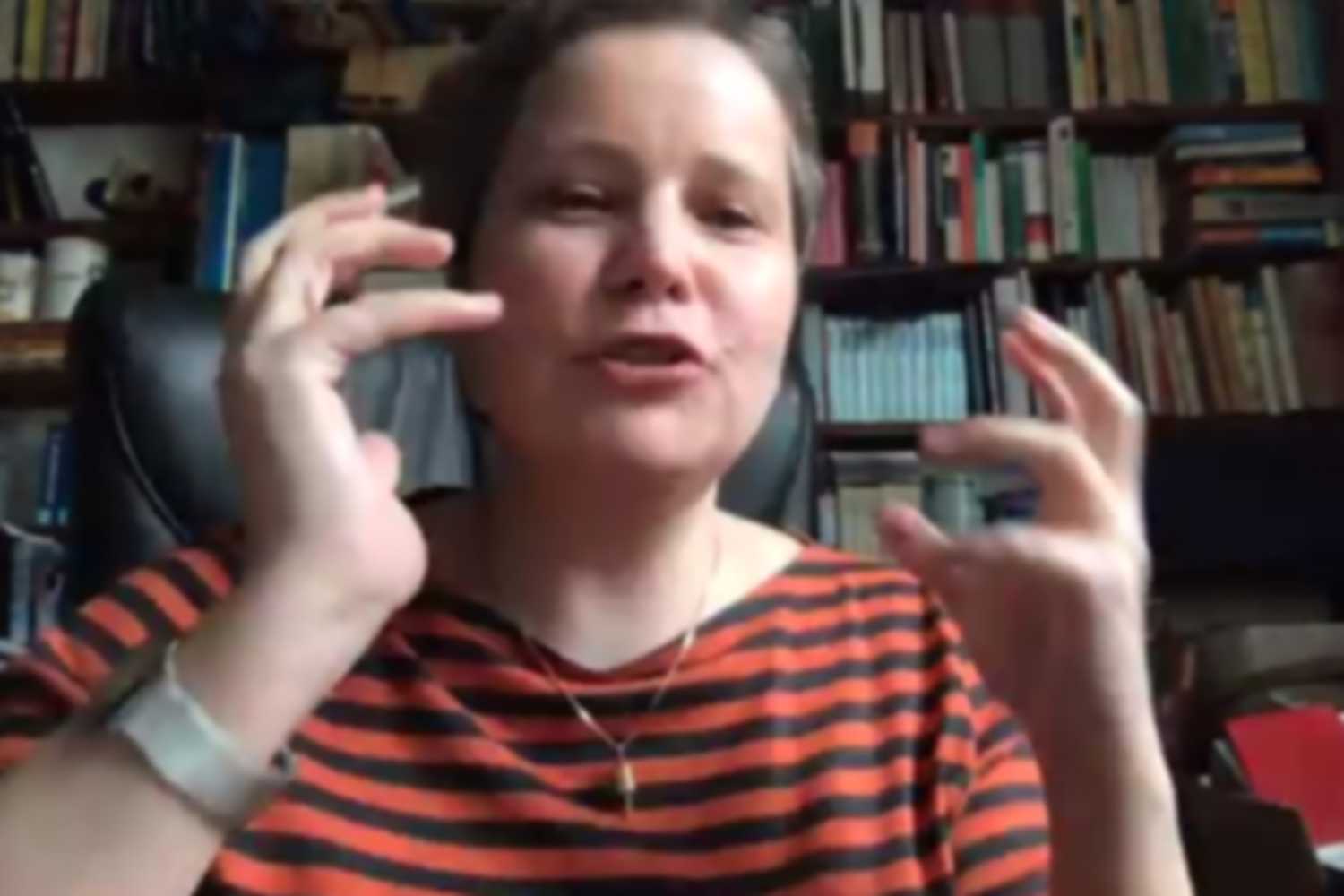Hello Barbara Diehl!
What does an entrepreneurship educator do? What is disruption to women's suffrage? How can scientific innovation be translated in business models? Tell us about it.
WHAT DO YOU DO, PROFESSIONALLY, ALL DAY? WHAT IS THE EXACT FIELD/DISCIPLINE IN WHICH YOU WORK?
Well, that’s a good question...(grins). How does the saying go in English? I am still in the process of finding out what I want to become when I finally grow up.
Here’s how I’d describe my field of activity: Putting people in touch with one another, motivating and empowering them to try out new things in their lives and to develop professionally and personally as a result. I’ve spent a large portion of my career to date in entrepreneurship education,
and if someone were to wake me up at three in the morning to ask: What are you?
, my answer would be: I’m an entrepreneurship educator!
.
WHAT LED YOU TO TAKE SUCH AN INTEREST IN THIS FIELD/THIS DISCIPLINE? WHEN DID IT BEGIN? AND WHAT HAPPENED NEXT?
I’d describe myself as a mongrel
, a mix of many different things. There is a quote by Albert Einstein that says: I am neither especially clever, nor especially gifted...I am just very, very curious.
I have always been driven by curiosity and the idea that I wanted to spend my professional career working with interesting people. If I had been born 350 years ago – and assuming, of course, that I had connections to the right sophisticated groups – I certainly would have established a salon. Many of these salons were actually initiated and led by women, including Catherine de Vivonne and Madeleine de Scudéry. Their salons brought people together from different disciplines – literature, science and art – to discuss new ideas. The salons were part of the intellectual bedrock of Enlightenment and the modern era.
Thinking about innovation is actually not so far away from that. Here, too, we rely on developing new ideas, calling traditions into question and transcending established disciplinary boundaries. This brings together a special group of people who are generally curious and open to new things.
But I also think that innovation in Germany – compared to the Anglo sphere, for instance – is still viewed too much as something that is technical in nature and that has to manifest itself primarily in terms of economic added value. This has implications for discourse about innovation, which for my taste is too driven by considerations of technology and economics here in Germany. You will find the discourse here is much more colorful in Anglo-Saxon countries. There you will also find designers, architects, psychologists and social anthropologists who often explore the human factor
in innovation, i.e. the motivations, fears and emotions that have accompanied encounters with new things or the connectedness with old and familiar things.

WHAT CAREER STUMBLING BLOCKS STONES WERE IN YOUR PATH, AND HOW DID YOU OVERCOME THEM?
Well, I can’t really say that I was faced with obstacles per se. If there was something I didn’t like somewhere, or if I encountered something more interesting, then I’ve always had the freedom and privilege of being able to change. But this flexibility is also due to the fact that I don’t have any children. That’s not something I regret at all. I’m simply aware of the fact that the kind of flexibility I’ve enjoyed definitely would not have been possible to this degree with children.
DID YOU CONSIDER YOUR GENDER TO BE AN ADVANTAGE, A DRAWBACK OR A NEUTRAL FACTOR IN YOUR CAREER?
Neutral, actually. Of course, I’m saddened by the fact that there are so few women in the field of innovation, and I have to admit that sometimes most of my associations around Whom do I put on a panel, and where?
are linked to men. This is far more pronounced in Germany than, for example, in the Anglo-Saxon area, where I believe there is greater sensitivity to diversity.
WHAT DRIVES YOU ONWARD AND UPWARD? (WHAT ARE THE SOURCES OF YOUR VERTICAL STRESS?)
Things that make me laugh or smile. I’m not necessarily referring to cat videos on YouTube, but rather content that describes new things while also questioning itself with a bit of self-irony. I have a pretty dark sense of humour!
WHICH DISRUPTIVE INNOVATION HAS IMPRESSED YOU THE MOST?
Well, there was a point in a previous life when I examined the history of medicine and science in very great detail. That is why I might have to take issue somewhat with the term disruptive innovation.
Innovation is often in the eyes of the beholder. What some consider highly innovative might be viewed as incremental
or yesterday’s news
by others. Compounding this is the fact that genuine innovations are often recognized as such only in hindsight, and sometimes they develop their potential over a very long period of time. I think there’s a quote by Bill Gates in which he says: People often overestimate the change that is going to happen in two years and underestimate the change that is happening over 10 years.
I am someone who likes to work with associations, and the word disruptive
often suggests going to bed in one world today and waking up in a different one tomorrow. Some are hooked on the term, while others find it uncanny. That is something this discourse has to take into account. At the beginning of my seminars, when I would ask students what their favorite innovation was, nine out of ten examples they mentioned typically had something to do with technology. So that means innovation and technology are very closely linked in people’s minds. When I asked them why they did not associate the term innovation
with developments such as women’s right to vote or anti-discrimination legislation or microcredits, there was often a little surprise, but good discussion, too.
In my opinion, this means we often think of innovation very one-dimensionally as a matter of technology, and at times this can lead us to reduce complex problems down to a technology fix.
A good example of this is the Corona Warn-App
: the contact-tracing app created to help stem the spread of the coronavirus. The idea that there could be a technological solution to curb the epidemic, without taking the sociocultural setting and the framework conditions in which the app is embedded, was a complete exaggeration.
Producing a truly disruptive innovation calls for lots of ingredients, and technology is just one of them. The situation also calls for a determination to change and to solve problems. Added to this is the element of enthusiasm – an awareness that there are many possible solutions that have to be tested and tried out. There is also a need for different skills and abilities in a team, for agility and iterative development in the process and – last but not least – an environment in which an approach like this is viewed favorably.

WHAT IS YOUR VIEW OF THE CULTURE AND LANDSCAPE FOR INNOVATION IN GERMANY (AND IN EUROPE)? WHAT WORKS WELL? AND WHAT DOES NOT WORK? WHAT DO WE NEED IN GERMANY TO GIVE RISE TO MORE SUCCESSFUL INNOVATIONS?
One might characterize this as a déformation professionnelle
to a certain extent. But if, like me, you have been involved in entrepreneurship, venture creation and innovation for more than 12 years, you cannot help but adopt the can do
attitude and the positive stance of let’s fix that problem.
After spending a total of 12 years studying and working in the Anglosphere, I have to say that this has gone a great distance toward putting my German inclination to skepticism, and at times even cynicism, into perspective. If you spend all day surrounded by people who want to use their ideas to change the world, you can’t help but get caught up in this positive enthusiasm.
Germany is a country where the glass is always half empty.
We complain too often, and at an absurdly high level. We ranked 17th in the global happiness report
published in 2019! Why is that? Based on many conversations I’ve had with students, young and old, and in seminars, my experience has often been that many barriers exist only in the mind and lead people to limit their own personal and professional development. There are often expectations, norms or behavioral patterns that suggest, Why should I of all people accomplish that?
rather than to ask, Why SHOULDN’T I do this?
The former often involves a play it safe
attitude, but people should actually ask the other way around: What have I got to lose if I try?
In this connection, as an entrepreneurship educator, you’re often a blend of motivator, coach and suggestion box. But the role also often includes a modicum of self-irony. I have learned that humor, wit and irony can often make problems a little easier to digest.
WHERE/IN WHAT SECTOR/FIELD/AREA IS INNOVATION PARTICULARLY LACKING?
Honestly, I’m always surprised to see how little we in this country take demographic change and the aging population into account. This is a slow yet rather mercilessly ticking time bomb. In my view, it is astonishing to see how ill-prepared we are to have 67 retirees per 100 workers in the foreseeable future, in the year 2030. By 2050, there will be 77 pensioners per 100 workers. This has profound consequences for social and political cohesion, not to mention the impact it has for society and the environment. The coronavirus crisis has already offered us a foretaste of what can happen when old
and young
are played off against each other in the discourse around the spread of the disease.

IS IT IMPORTANT TO PROMOTE WOMEN SCIENTISTS AND INNOVATORS DIFFERENTLY AND MORE FORCEFULLY? DO YOU HAVE ANY IDEAS ABOUT THAT?
For a long time, I was a firm opponent of quotas, but obviously relying on changing times and self-regulation alone has not led to much improvement. That’s why my attitude about this has changed. Of course introducing quotas only addresses the symptoms, but in terms of the signal it sends, I now think it is good to have clear goals and guidelines here.
It is a bit depressing to see how few women – especially in higher and senior positions – are busy in the innovation setting, particularly in Germany. Innovation in this country is still too alpha and too focused on technological-economic value creation. In my view, the creation of social, cultural and societal value is still too under-represented in the discourse around innovation. Still, these are areas in which you will find many great and positive examples of female-empowered innovation.
WHAT DISRUPTIVE INNOVATION DO YOU ABSOLUTELY WANT TO SEE COME ABOUT? / WHAT BIG PROBLEM WOULD YOU LIKE TO SOLVE?
Well, frankly... To me, the entire topic of urban mining
and the recovery of raw materials from electronics waste, mobile phones and batteries very urgent. We simply often fail to grasp the conditions and consequences for people and the environment when these raw materials are mined and then end up in the batteries and chargers on which our society has grown so dependent these days. I also think the topic of the green internet
is exciting. After all, we are now so used to being online, everywhere and all the time, that we no longer worry at all about how much energy this consumes. It is no accident that technology groups such as Facebook are building their data centers near the Arctic Circle.

BARBARA DIEHL is a proven expert in entrepreneurship, innovation and education and has been facilitating partnerships with science and business at SPRIND since December 1, 2020.
Prior joining SPRIND, she had a successful career in the UK and Ireland for 10 years: at the Oxford University Entrepreneurship Centre (2008-2015) and the Innovation Academy at University College Dublin (UCD) (2015-2018). In Oxford, she led early-stage investment programs and an executive education program for fast-growing small businesses (Goldman Sachs 10,000 Small Businesses growth program). She has also been a member of the investment committees for a variety of seed investment funds. Following her return to Germany, from 2018 to 2020 she served as Director of Transfer and Innovation at the Helmholtz Association of German Research Centres.
Barbara Diehl’s special strength: She can give learners the self-confidence they need to develop their creative and entrepreneurial skills, and to put these to the test.
